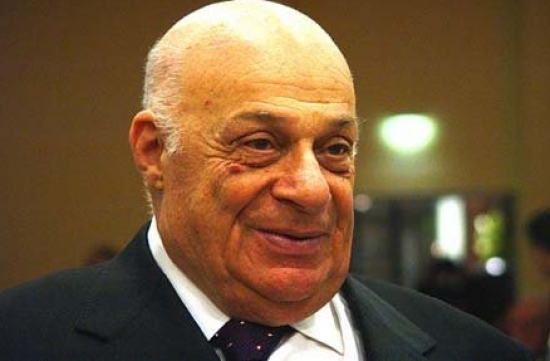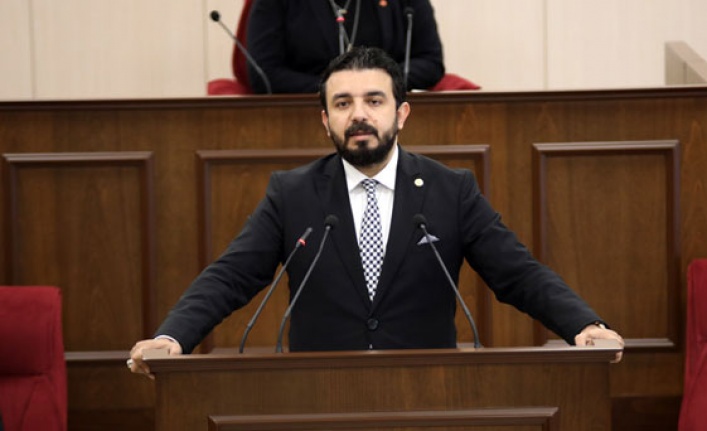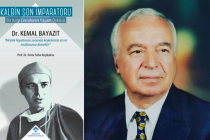Calls have been made to scrap the constitutional right to immunity for MPs in the Turkish Republic of Northern Cyprus (TRNC) after a deputy appeared to use his position to put pressure on the police.
Bertan Zaroğlu, an MP for the Rebirth Party, seemed to invoke parliamentary immunity during a spat with a police officer after a car he had hired was impounded.
The car was seized during a routine spot check on the main road to Near East University in Lefkoşa on Monday, 15 April, after officers established that the person behind the wheel was not insured to drive the vehicle.
Mr Zaroğlu arrived on the scene after receiving a phone call from the driver, reports said.
The MP then used a mobile phone to broadcast live from where traffic police where carrying out inspections, claiming that the officer in question had refused to hand over the key to the car.
During the 13-minute long stream, Mr Zaroğlu describes the situation as a “disgrace” and a “scandal” as he repeatedly asks the policeman to explain his actions, questions that the officer ignores.
“The police officer has seized the key to my car, even though he knows I am a TRNC MP… even though I have parliamentary immunity,” Mr Zaroğlu says.
He adds during the feed that he tried to call police chief Süleyman Manavoğlu, but was told he was unavailable, and that he would be taking “legal action” against the police.
The incident sparked a heated debate in Parliament and on social media.
Prime Minister Tufan Erhürman, leader of the Republican Turkish Party (CTP), told MPs the following day that he had spoken to Mr Manavoğlu, who had said that the police officer had acted in accordance with the law.
The car was returned to Mr Zaroğlu, who became an MP in 2018, once it had been established that he had rented it, Erhürman said
The Premier said that MPs’ immunity did not cover such cases and that road traffic laws “apply to everyone”.
Clip of TRNC MP Bertan Zaroğlu challenging police for failing to return his hire car key
The PM also told Parliament of the dangers of the incident being turned into a “Turk versus Cypriot” row via social media, adding that many of the TRNC’s police officers originated from Turkey.
“Making threats, insults and swearing via the internet, via social media, is currently a criminal offence under our laws,” he warned.
Mr Zaroğlu was born in the Turkish province of Hatay in 1982 and came to North Cyprus in 2000 to complete his higher education, according to Parliament’s official website
CTP MP Asım Akansoy accused the YDP – which won two seats in last year’s general election – of “populism”, while Mr Zaroğlu claimed he had been the victim of a smear campaign.
“The police officer concerned did not try to offend Bertan Zaroğlu, he tried to offend a TRNC deputy . . . hiding behind parliamentary immunity is not an honourable stand,” Mr Zaroğlu said.
He claimed he had “no objection” to the fine issued by the police, and that his only objection had been to the initial refusal to hand back the key to the hire car.
Taking to the podium, YDP leader Erhan Arıklı said that the police needed some “serious training” to be able to explain to motorists exactly what offence they have committed.
Public Works and Transport Minister Tolga Atakan responded from his seat by saying that the police action was “not aimed just at this particular person” and that the rules were “very clear” that only those named on a rental car agreement were allowed to drive the vehicle.
Deputy Prime Minister and Minister of Foreign Affairs Kudret Özersay, writing on Facebook, said it was time for MPs’ immunity to be ended by amendment of the TRNC’s Constitution.
“Up till now I have never asked to be exempted from the laws of this country just because I have been elected, and I never will,” the People’s Party leader said.
“These events … have shown that MPs should not be immune.”

Finance Minister and Democrat Party head Serdar Denktaş also took to Facebook, on the day of the incident, where he wrote that his late father, TRNC Founding President Rauf Denktaş, had once been issued with a fine for driving without a licence, which he did not have with him at the time he was stopped.
“When the chief of police called to apologise the next day and said that he had punished the young police officer in question, Denktaş got cross and told him that the police officer was doing his duty and that he should be rewarded instead,” he wrote.
“I congratulate the young policeman who was doing the duty given to him today.”
Later in the week Mr Arıklı and Mr Zaroğlu sought to patch up their differences with the police, paying a visit to their headquarters, accompanied by YDP officials, where they handed over a bouquet of flowers.
The policeman who was filmed by Mr Zaroğlu was among those present at the gathering, according to Turkish Cypriot media.
Under Clause 1 of Article 84 of the TRNC Constitution, MPs cannot be held liable for their “votes or statements at the meetings of the Assembly of the Republic and for repeating or disclosing these outside the Assembly”.
Clauses 2 and 3 state: “Where it is alleged that a deputy committed an offence before or after the elections, he cannot be arrested or prosecuted without the leave of the Assembly.
“Such leave shall not be necessary in the case of a flagrant offence, punishable with death or imprisonment for five years or more. Provided that the competent person shall notify forthwith the Assembly.
“A sentence imposed on a deputy before or after the elections, shall not be carried out until after the end of his term of office.
“The period during which a deputy remains in office shall not be reckoned for purposes of limitation of time.”





